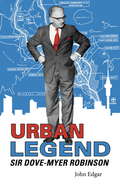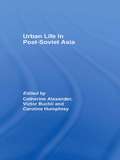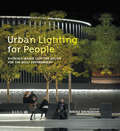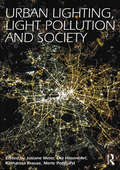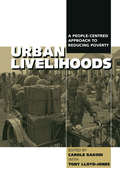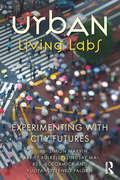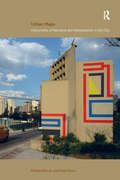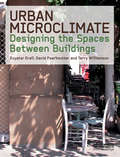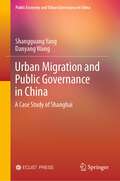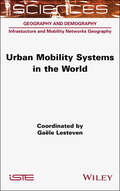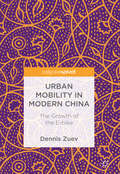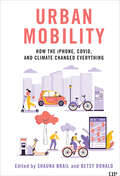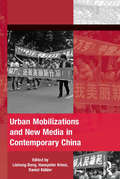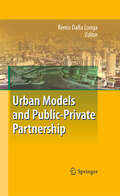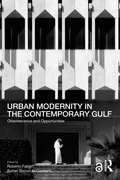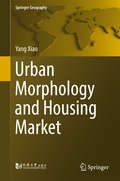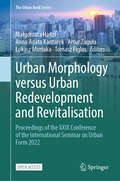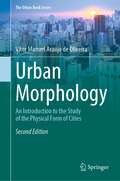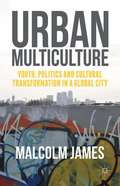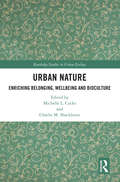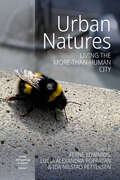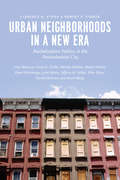- Table View
- List View
Urban Legend - Sir Dove-Myer Robinson: Sir Dove-myer Robinson
by John EdgarEvery Aucklander of a certain age knows that we should have listened to Mayor Robbie back in the 1970s' - Labour Party MP Phil Twyford. But who was he? And why is he still relevant today? From a working class Jewish boy in Sheffield to long serving Mayor of Auckland (1959-1980), Sir Dove-Myer Robinson's life followed an unusual path. A slight, bespectacled man whose tiny stature was offset by a booming voice and massive ego, he was a natural political campaigner. Associated with a host of local and national causes, he became Auckland's most recognisable spokesperson. He joined political causes and challenged convention. He fought for our current waste water treatment process, against French nuclear testing, and an integrated Auckland transport system and city. Though his political career was outstanding and memorable, his personal life was a hot bed of gossip. Four wives, one 20 years his junior, and a very public divorce during one of his terms meant he was never far from the headlines. In this book we look at both his personal life and his outstanding political career, which affected not only the future of Auckland, but the future of New Zealand.
Urban Life in Post-Soviet Asia
by Caroline Humphrey Victor Buchli Catherine AlexanderCapturing a unique historical moment, this book examines the changes in urban life since the collapse of the Soviet Union from an ethnographic perspective, thus addressing significant gaps in the literature on cities, Central Asia and post-socialism. It encompasses Tashkent, Almaty, Astana and Ulan-Ude: four cities with quite different responses to the fall of the Soviet Union. Each chapter takes a theme of central significance across this huge geographical terrain, addresses it through one city and contextualizes it by reference to the other sites in this volume. The structure of the book moves from nostalgia and memories of the Soviet past to examine how current changes are being experienced and imagined through the shifting materialities, temporalities and political economies of urban life. Privatization is giving rise to new social geographies, while ethnic and religious sensibilities are creating emergent networks of sacred sites. But, however much ideologies are changing, cities also provide a constant lived mnemonic of lost configurations of ideology and practice, acting as signposts to bankrupted futures. Urban Life in Post-Soviet Asia provides a detailed account of the changing nature of urban life in post-Soviet Asia, clearly elucidating the centrality of these urban transformations to citizens’ understandings of their own socio-economic condition.
Urban Lighting for People: Evidence-Based Lighting Design for the Built Environment
by Navaz DavoudianLighting has the power to illuminate and enhance our experience within the built environment. The light that enables people to travel around their neighbourhood or their city; the light which they see themselves and their neighbourhood under. Research into the effects of urban lighting on behaviour, environmental psychology and social interaction is developing at a rapid rate. Yet, despite the affect it has on our daily lives, the practical application of this research is a relatively untapped resource. This book explores the needs and experiences of people at night and how these can be addressed by public lighting. It will give readers the confidence to develop more sophisticated lighting plans and add value to their projects. Case studies provide in-depth analysis of real-life projects and will help the reader to understand lighting designers’ own experiences, including post-installation observations. Written in an accessible style by an array of experts, this is an essential book for practitioners, academics and students alike, that will enable you to put the research in to practice and develop better lighting for better places.
Urban Lighting, Light Pollution and Society
by Josiane Meier Ute Hasenöhrl Katharina Krause Merle PottharstAfter decades "in the shadows", urban lighting is re-emerging as a matter of public debate. Long-standing truths are increasingly questioned as a confluence of developments affects lighting itself and the way it is viewed. Light has become an integral element of place-making and energy-saving initiatives alike. Rapidly evolving lighting technologies are opening up new possibilities, but also posing new challenges to planners, and awareness is growing that artificial illumination is not purely benign but can actually constitute a form of pollution. As a result, public policy frameworks, incentives and initiatives are undergoing a phase of innovation and change that will affect how cities are lit for years to come. The first comprehensive compilation of current scientific discussions on urban lighting and light pollution from a social science and humanities perspective, Urban Lighting, Light Pollution and Society contributes to an evolving international debate on an increasingly controversial topic. The contributions draw a rich panorama of the manifold discourses connected with artificial illumination in the past and present – from early attempts to promote new lighting technologies in the late 19th and early 20th centuries to current debates on restricting its excessive usage in public space and the protection of darkness. By bringing together a cross-section of current findings and debates on urban lighting and light pollution from a wide variety of disciplines, it reflects that artificial lighting is multifaceted in its qualities, utilisation and interpretation. Including case studies from the United States, Europe, and the UK, Urban Lighting, Light Pollution and Society is one of the first to take a serious assessment of light, pollution, and places and is a valuable resource for planners, policy makers and students in related subjects.
Urban Livelihoods: A People-centred Approach to Reducing Poverty
by Carole Rakodi Tony Lloyd-JonesOne of the most promising approaches to poverty reduction in developing countries is to encourage sustainable livelihoods for the poor. This takes account of their opportunities and assets and the sources of their vulnerability. Based on recent and extensive research, this volume thoroughly assesses the value of the livelihoods approach to urban poverty. The book reviews the situation and strategies of the urban poor and identifies the policies and practical programmes that work best. Lasting improvements depend not just on economic development, but on political commitment and structures that are responsive to the claims and needs of different groups of poor people.
Urban Living Lab for Local Regeneration: Beyond Participation in Large-scale Social Housing Estates (The Urban Book Series)
by Nele Aernouts Francesca Cognetti Elena MaranghiThis open access book provides an integrated overview of the challenges and resources of large-scale social housing estates in Europe and outlines possible interdisciplinary approaches and tools to promote their regeneration. It especially focuses on the tool of urban living labs, as promising in promoting new and more effective local governance and in including the different actors into the planning process. The book combines theory and practice, since it is the result of action-research conducted in different social housing estates all over Europe.Building on the results of the SoHoLab project (2017–2020), the book benefits from a multidisciplinary perspective, since the researchers involved belong to the fields of anthropology, urban planning, architecture, urban sociology. The project combined theoretical reflections with the installation and/or the consolidation of Urban Living Labs, run by universities, in large social housing estates in three European cities: Brussels, Milan and Paris.
Urban Living Labs: Experimenting with City Futures
by Simon Marvin, Harriet Bulkeley, Lindsay Mai, Kes McCormick and Yuliya Voytenko PalganAll cities face a pressing challenge – how can they provide economic prosperity and social cohesion while achieving environmental sustainability? In response, new collaborations are emerging in the form of urban living labs – sites devised to design, test and learn from social and technical innovation in real time. The aim of this volume is to examine, inform and advance the governance of sustainability transitions through urban living labs. Notably, urban living labs are proliferating rapidly across the globe as a means through which public and private actors are testing innovations in buildings, transport and energy systems. Yet despite the experimentation taking place on the ground, we lack systematic learning and international comparison across urban and national contexts about their impacts and effectiveness. We have limited knowledge on how good practice can be scaled up to achieve the transformative change required. This book brings together leading international researchers within a systematic comparative framework for evaluating the design, practices and processes of urban living labs to enable the comparative analysis of their potential and limits. It provides new insights into the governance of urban sustainability and how to improve the design and implementation of urban living labs in order to realise their potential.
Urban Maps: Instruments of Narrative and Interpretation in the City
by Richard Brook Nick DunnThis book concerns the city and the 'devices' that define the urban environment by their presence, representation or interpretation. The texts offer an interdisciplinary discourse and critique of the complex systems, artifacts, interventions and evidences that can inform our understanding of urban territories; on surfaces, in the margins or within voids. The diverse media of arts practices as well as commercial branding are used to explore narratives that reveal latent characteristics of urban situations that conventional architectural inquiry is unable to do. The subjects covered are presented within a wider framework of urban theory into which are embedded case study examples that outline the practices, processes and interpretations of each theme. The chapters provide a contemporary reading of urban socio-cultural conditions using 'mapping' as a lens to explore and communicate the social phenomena and lived experiences of the dynamic and temporal city. Mapping is developed as a form of critical instrumentality to expose, record and contribute to the understanding of the singular essences of space, place and networks by thematic, cognitive and experiential modes of investigation.
Urban Masses and Moral Order in America, 1820-1920
by Paul BoyerFor over a century, dark visions of moral collapse and social disintegration in American cities spurred an anxious middle class to search for ways to restore order. In this important book, Paul Boyer explores the links between the urban reforms of the Progressive era and the long efforts of prior generations to tame the cities. He integrates the ideologies of urban crusades with an examination of the careers and the mentalities of a group of vigorous activists, including Lyman Beecher; the pioneers of the tract societies and Sunday schools; Charles Loring Brace of the Children's Aid Society; Josephine Shaw Lowell of the Charity Organization movement; the father of American playgrounds, Joseph Lee; and the eloquent city planner Daniel Hudson Burnham. Boyer describes the early attempts of Jacksonian evangelicals to recreate in the city the social equivalent of the morally homogeneous village; he also discusses later strategies that tried to exert a moral influence on urban immigrant families by voluntarist effort, including, for instance, the Charity Organizations' "friendly visitors." By the 1890s there had developed two sharply divergent trends in thinking about urban planning and social control: the bleak assessment that led to coercive strategies and the hopeful evaluation that emphasized the importance of environmental betterment as a means of urban moral control.
Urban Microclimate: Designing the Spaces Between Buildings
by David Pearlmutter Evyatar Erell Terence WilliamsonThe quality of life of millions of people living in cities could be improved if the form of the city were to evolve in a manner appropriate to its climatic context. Climatically responsive urban design is vital to any notion of sustainability: it enables individual buildings to make use of renewable energy sources for passive heating and cooling, it enhances pedestrian comfort and activity in outdoor spaces, and it may even encourage city dwellers to moderate their dependence on private vehicles. Urban Microclimate bridges the gap between climatology research and applied urban design. It provides architects and urban design professionals with an understanding of how the structure of the built environment at all scales affects microclimatic conditions in the space between buildings, and analyzes the interaction between microclimate and each of the elements of the urban landscape. In the first two sections of the book, the extensive body of work on this subject by climatologists and geographers is presented in the language of architecture and planning professionals. The third section follows each step in the design process, and in part four a critical analysis of selected case study projects provides a demonstration of the complexity of applied urban design. Practitioners will find in this book a useful guide to consult, as they address these key environmental issues in their own work.
Urban Migration and Public Governance in China: A Case Study of Shanghai (Public Economy and Urban Governance in China)
by Shangguang Yang Danyang WangThis book, focusing on urban migration and public governance, reviews on the concepts and theories of urban migration and urban governance across the globe and sums up world migration trends and policy changes, coupled with the characteristics and types of China’s urban migration. What differs this book from other books is that it probes into the main factors and mechanisms influencing urban migration and inclusion, and that it adopts Shanghai as a sample and capitalizes on Shanghai’s urban migration data to verify the subjective and objective reasons affecting urban migrants’ inclusion. Moreover, this book takes a further step to conduct a theoretical reflection from the perspectives of population migration and migration policies and explores current dilemmas facing China in terms of urban migration management and possible ways to make a difference. In the final part, this book puts forward some theory-based and practicable countermeasures to transform urban migration governance in China.
Urban Mobility Systems in the World
by Gaële LestevenUrban Mobility Systems in the World provides insight into the geographical organization of urban mobility systems around the world. These “systems” consist of infrastructure networks, existing transport services and people’s travel practices. Adopting a comparative approach, the book highlights the geographical diversity of mobility systems, based on case studies from Africa, North and South America, Asia and Europe. This multi-disciplinary book is organized into twelve chapters, divided into four parts. The first part gives an overview of urban mobility, and then examines the factors that determine everyday mobility in cities, revealing different travel practices among populations (poor, elderly and children). Parts 2 and 3, respectively, focus on urban public transport (trains, metros, minibuses) and active modes of transport (walking, cycling), and the related infrastructure policies. The final section examines the circulation of urban mobility analysis tools and public policy models
Urban Mobility in Modern China: The Growth Of The E-bike
by Dennis ZuevThis book is an empirically rich case-study of what is currently the most popular alternative-fuel vehicle in the history of motorization – the electric two-wheeler (e-bike). The book provides sociological insights into e-bike mobility in China and discusses politics, social practices and larger issues of mobility transition in urban China. Taking an accessible approach to the subject, the book identifies the main sociospatial conflicts regarding the use of e-bikes and discusses why electric two-wheeler mobility is important for the future of urban China and urban transportation globally. This book will be an invaluable read for urban geographers and transportation researchers, but also for academics and general readers interested in Chinese Studies, specifically in the area of urban mobility in China.
Urban Mobility: How the iPhone, COVID, and Climate Changed Everything
by Shauna Brail Betsy DonaldUrban Mobility sheds light on mobility in twenty-first-century Canadian cities. The book explores the profound changes associated with technological innovation, pandemic-induced impacts on travel behaviour, and the urgent need for mobility to respond meaningfully to the climate crisis. Featuring contributions from leading Canadian and American scholars and researchers, this edited collection traverses disciplines including geography, engineering, management, policy studies, political science, and urban planning. Chapters illuminate novel research findings related to a variety of modes of mobility, including public transit, e-scooters, bike-sharing, ride-hailing, and autonomous vehicles. Contributors draw out the connections between urban challenges, technological change, societal need, and governance mechanisms. The collection demonstrates why the smart phone, COVID-19, and climate present a crucial lens through which we can understand the present and future of urban mobility. The way we move in cities has been disrupted and altered because of technological innovation, the lingering impacts of COVID-19, and efforts to reduce transport-related emissions. Urban Mobility concludes that the path forward requires good public policy from all levels of government, working in partnership with the private sector and non-profits to direct and address the best urban mobility framework for Canadian cities.
Urban Mobilizations and New Media in Contemporary China (The Mobilization Series on Social Movements, Protest, and Culture)
by Hanspeter Kriesi Lisheng DongPopular protests are on the rise in China. However, since protesters rely on existing channels of participation and on patronage by elite backers, the state has been able to stymie attempts to generalize resistance and no large scale political movements have significantly challenged party rule. Yet the Chinese state is not monolithic. Decentralization has increased the power of local authorities, creating space for policy innovations and opening up the political opportunity structure. Popular protest in China - particularly in urban realm- not only benefits from the political fragmentation of the state, but also from the political communications revolution. The question of how and to what extent the internet can be used for mobilizing popular resistance in China is hotly debated. The government, virtual social organizations, and individual netizens both cooperate and compete with each other on the web. New media both increases the scope of the mobilizers and the mobilized (thereby creating new social capital), and provides the government with new means of social control (thereby limiting the political impact of the growing social capital). This volume is the first of its kind to assess the ways new media influence the mobilization of popular resistance and its possible effects in China today.
Urban Models and Public-Private Partnership
by Remo Dalla LongaThis book addresses the topic of urban models with reference to large western cities and particularly to global cities. In the current transitional phase, the use of language and the systematization of phenomena has become important. The book's matrix examines two important and strongly connected themes: urban models and public-private partnerships (PPP) determined by urban functions which are transformed in an increasingly rapid and complex manner as a result of globalization. PPPs represent the new border of the modern global state. The book focuses on two principal urban models (renewal and restructuring) through PPPs and subsequently the relationship between state and market in fourteen Italian cities (renewal) and two central European cities, Leipzig and Budapest (restructuring). CoUrbIT (Complex Urban Investment Tools) and the book 'Globalization and Urban Implosion: Creating New Competitive Advantage' by the same author serve as points of reference.
Urban Modernity in the Contemporary Gulf: Obsolescence and Opportunities
by Roberto Fabbri Sultan Sooud Al-QassemiUrban Modernity in the Contemporary Gulf offers a timely and engaging discussion on architectural production in the modernization era in the Arabian Peninsula. Focusing on the 20th century as a starting point, the book explores the display of transnational architectural practices resulting in different notions of locality, cosmopolitanism, and modernity. Contextually, with an eye on the present, the book reflects on the initiatives that recently re-engaged with the once ville moderne which, meanwhile, lost its pivotal function and meaning. A city within a bigger city, the urban fabric produced during the modernization era has the potential to narrate the social growth, East–West dynamics, and citizens’ memories of the recent past. Reading obsolescence as an opportunity, the book looks into this topic from a cross-country perspective. It maps, reads and analyses the notion of modern heritage in relation to the contemporary city and looks beyond physical transformations to embrace cultural practices and strategies of urban re-appropriation. It interrogates the value of modern architecture in the non-West, examining how academic research is expanding the debate on Gulf urbanism, and describes how practices of reuse could foster rethinking neglected areas, also addressing land consumption in the GCC. Presenting a diverse and geographically inclusive authorship, which combines established and up-and-coming researchers in the field, this is an important reference for academics and upper-level students interested in heritage studies, post-colonial urbanism, and architecture in the non-West.
Urban Morphology and Housing Market
by Yang XiaoThis book is devoted to fill the 'urban economics niche' and conceptualize a framework for valuing the urban configuration via local housing market. Advanced network analysis techniques are employed to capture the centrality features hindered in street layout. The author explores the several effects of urban morphology via housing market over two distinct contexts: UK and China. This work will appeal to a wide readership from scholars and practitioner to policy makers within the fields of real estate analysis, urban and regional studies, urban planning, urban design and economic geography.
Urban Morphology versus Urban Redevelopment and Revitalisation: Proceedings of the XXIX Conference of the International Seminar on Urban Form 2022 (The Urban Book Series)
by Małgorzata Hanzl Anna Agata Kantarek Artur Zaguła Łukasz Musiaka Tomasz FiglusThis open access book provides a comprehensive review of current theoretical and practical expertise at the confluence of urban morphology and urban rehabilitation. Its holistic perspective addresses theoretical explanations and approaches as well as practical experiences in the design of urban places. The extensive methodological section illustrates innovation and development in this area. The sections of Urban Morphology versus Urban Redevelopment and Revitalisation offer insights from several perspectives: political, social, cultural and economic. Each part examines the intersection with the field of morphological studies. The transformations of the urban fabric are the focus of the two final sections; they address historical processes and review current architectural and urban solutions.
Urban Morphology: An Introduction to the Study of the Physical Form of Cities (The Urban Book Series)
by Vítor Manuel Araújo de Oliveira'This is a textbook about cities or, more precisely, about the physical form of cities. It provides an overview of the main elements of urban form—streets, street blocks, plots and buildings—structuring our cities and the fundamental agents and processes of transformation shaping these elements. It applies this analytical framework to describe the evolution of cities over history as well as to explain the functioning of contemporary cities. After the initial focus on the 'object' (cities), the book introduces how different schools of thought have been dealing with this object since the emergence of Urban Morphology, as the science of urban form, in the turning to the twentieth century. Finally, the book identifies the main contributions of urban morphology to cities, societies and economies. This second edition of the book offers updated and more accurate knowledge on several morphological issues, presents expanded contents, and it has a more explicit didactic nature, including a set of exercises in the end of each chapter, that will help teachers and students (in architecture, geography, planning, history, sociology and urban studies) in acquiring and consolidating their urban morphological knowledge.
Urban Multiculture: Youth, Politics and Cultural Transformation in a Global City
by Malcolm JamesThis book explores the transformation of youth and urban culture in neoliberal Britain. Focusing on the reconfiguration of urban culture in relation to race, marginalization and youth politics, James examines the shifting formations of memory, territory, cultural performance and politics.
Urban Nature: Enriching Belonging, Wellbeing and Bioculture (Routledge Studies in Urban Ecology)
by Michelle L. Cocks and Charlie M. ShackletonThis book showcases the diversity of ways in which urban residents from varying cultural contexts view, interact, engage with and give meaning to urban nature, aiming to counterbalance the dominance of Western depictions and values of urban nature and design. Urban nature has up to now largely been defined, planned and managed in a way that is heavily dominated by Western understandings, values and appreciations, which has spread through colonialism and globalisation. As cities increasingly represent a diversity of cultures, and urban nature is being increasingly recognised as contributing to residents' wellbeing, belonging and overall quality of life, it is important to consider the numerous ways in which urban nature is understood and appreciated. This collection of case studies includes examples from Africa, Asia, Europe, North and South America, and reflects on the multi-dimensional aspects of engagements with urban nature through a biocultural diversity lens. The chapters cover several themes such as how engagements with nature contribute to a sense of wellbeing and belonging; the implications that diversity has on the provision, design and management of urban environments; and the threats inhibiting residents’ abilities to engage meaningfully with nature. The book challenges the dominant discourse, Western ideological understandings and meta-narratives of modernisation and unilineal urban transitions. A timely addition to the literature, Urban Nature: Enriching Belonging, Wellbeing and Bioculture offers an alternative to Western ideological understandings of nature and values and will be of great interest to those working in human and environmental urban ecology. It will also be key reading for students in the relevant fields of anthropology, development studies, geography, social ecology and urban studies.
Urban Natures: Living the More-than-Human City (Urban Anthropology Unbound #1)
by Ida Nilstad Pettersen Ferne Edwards, Lucia Alexandra PopartanEfforts to create greener urban spaces have historically taken many forms, often disorganized and undisciplined. Recently, however, the push towards greener cities has evolved into a more cohesive movement. Drawing from multidisciplinary case studies, Urban Natures examines the possibilities of an ethical lively multi-species city with the understanding that humanity’s relationship to nature is politically constructed. Covering a wide range of sectors, cities, and urban spaces, as well as topics ranging from edible cities to issues of power, and more-than-human methodologies, this volume pushes our imagination of a green urban future.
Urban Neighborhoods in a New Era: Revitalization Politics in the Postindustrial City
by Clarence N. Stone Robert P. StokerFor decades, North American cities racked by deindustrialization and population loss have followed one primary path in their attempts at revitalization: a focus on economic growth in downtown and business areas. Neighborhoods, meanwhile, have often been left severely underserved. There are, however, signs of change. This collection of studies by a distinguished group of political scientists and urban planning scholars offers a rich analysis of the scope, potential, and ramifications of a shift still in progress. Focusing on neighborhoods in six cities--Baltimore, Chicago, Denver, Los Angeles, Phoenix, and Toronto--the authors show how key players, including politicians and philanthropic organizations, are beginning to see economic growth and neighborhood improvement as complementary goals. The heads of universities and hospitals in central locations also find themselves facing newly defined realities, adding to the fluidity of a new political landscape even as structural inequalities exert a continuing influence. While not denying the hurdles that community revitalization still faces, the contributors ultimately put forth a strong case that a more hospitable local milieu can be created for making neighborhood policy. In examining the course of experiences from an earlier period of redevelopment to the present postindustrial city, this book opens a window on a complex process of political change and possibility for reform.
Urban Neighborhoods in a New Era: Revitalization Politics in the Postindustrial City
by Clarence N. Stone Robert P. StokerFor decades, North American cities racked by deindustrialization and population loss have followed one primary path in their attempts at revitalization: a focus on economic growth in downtown and business areas. Neighborhoods, meanwhile, have often been left severely underserved. There are, however, signs of change. This collection of studies by a distinguished group of political scientists and urban planning scholars offers a rich analysis of the scope, potential, and ramifications of a shift still in progress. Focusing on neighborhoods in six cities—Baltimore, Chicago, Denver, Los Angeles, Phoenix, and Toronto—the authors show how key players, including politicians and philanthropic organizations, are beginning to see economic growth and neighborhood improvement as complementary goals. The heads of universities and hospitals in central locations also find themselves facing newly defined realities, adding to the fluidity of a new political landscape even as structural inequalities exert a continuing influence. While not denying the hurdles that community revitalization still faces, the contributors ultimately put forth a strong case that a more hospitable local milieu can be created for making neighborhood policy. In examining the course of experiences from an earlier period of redevelopment to the present postindustrial city, this book opens a window on a complex process of political change and possibility for reform.
